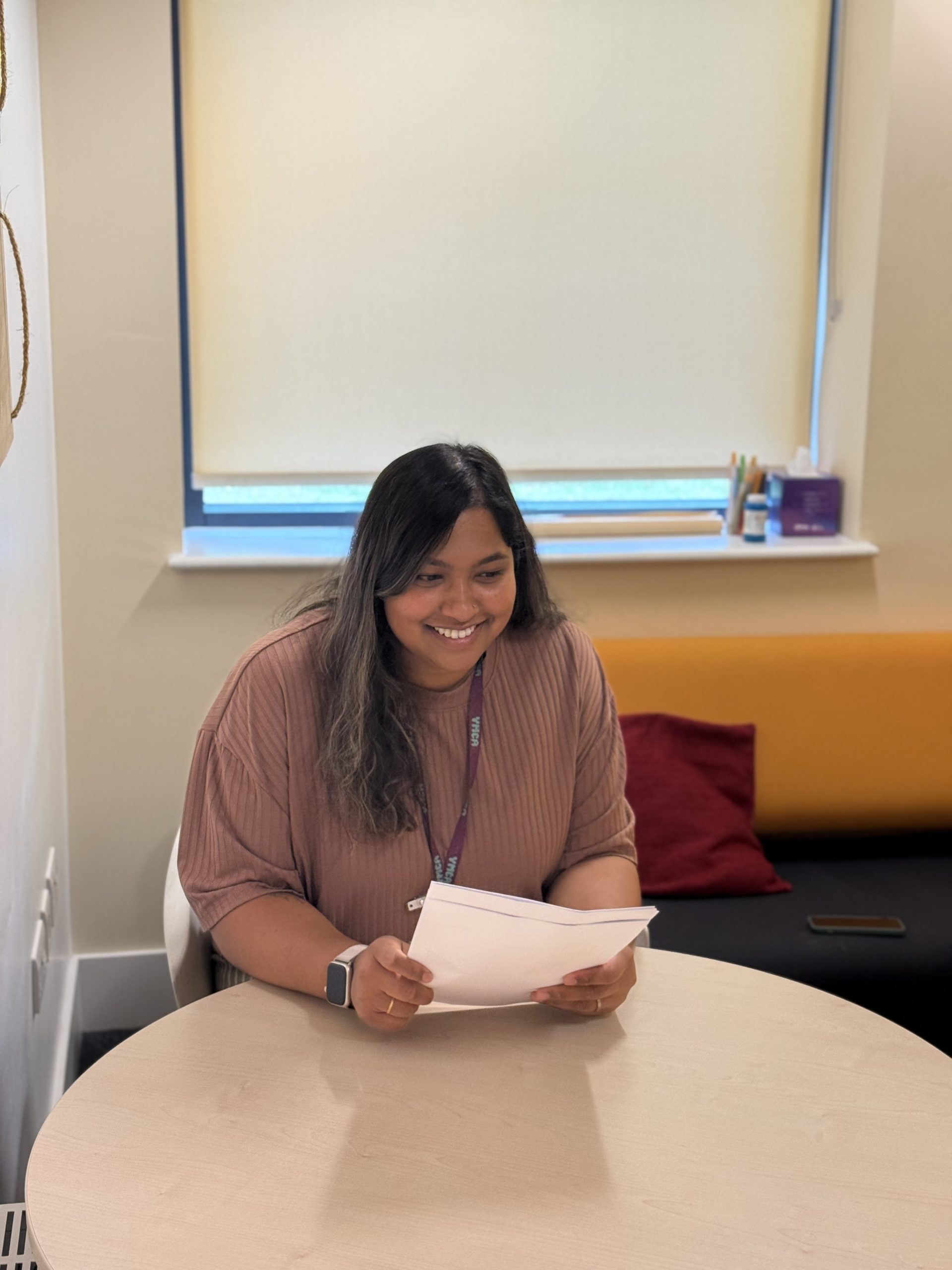Search Website
Close
-
YMCA
-
What we do
-
Get Involved
-
YMCA
-
What we do
-
Get Involved
Search Website
Close
Charlie’s school attendance went from 8% to 80% thanks to YMCA’s intervention
Charlie, aged nine, was first referred to YMCA’s Emotional Wellbeing and Mental Health services by his school because his attendance was as low as 8%. Diagnosed with ADHD and autism, Charlie’s mum had noticed a sharp decline in his self-confidence and that he’d become increasingly anxious. He was avoiding school and had stopped taking part in his usual hobbies.
Angeline Selvamanoharan, one of YMCA’s Primary School Early Intervention Coordinators, was assigned to support him with his Emotionally Based School Non-Attendance (EBSNA). Her role is part of the Mindworks Surrey service, delivered in partnership with Surrey Wellbeing Partnership.
“There are many reasons why a child might find school tricky,” Angeline explains. “They could be experiencing anxiety, friendship issues, bullying, exam stress, or something might be going on at home.”
When Angeline first met Charlie, she recalls that “it seemed as though his energy and motivation had been depleted.”
“We played his favourite game, UNO,” she says. “I also introduced him to a game about recognising your strengths and remembering happy moments.”
After several weeks of meeting regularly in school, Charlie slowly began to open up. By the third session, he disclosed that other children had been unkind to him about his height. This had severely affected his self-esteem and confidence, contributing to his school avoidance.
“There was a specific moment where children were being unkind to him,” says Angeline. “Charlie was finding it difficult to control his emotions.”
Over three months, Angeline and Charlie worked together on emotional regulation. She supported him in recognising his feelings and learning strategies to manage them. “We used techniques like the worry tree and body mapping,” she explains. “These help children to link physical symptoms and emotions – for example, butterflies in the stomach when they’re nervous. Then we explore practical strategies for coping with those feelings.”
Other tools included breathing exercises, the anxiety iceberg (to identify the root causes of worry), and the circle of control (helping Charlie understand what was within his control and what was not).
Initially, Charlie would only attend school for his sessions with Angeline. But through consistent support and encouragement, on the fourth session, he felt confident enough to remain for the rest of the school day. He said, “it was not bad.”
“The things that really helped Charlie were positive reinforcement and a holistic approach,” explains Angeline. “That meant working not just with him, but also with his school and his family. For example, we explored whether he would feel comfortable for me to speak to his teacher about the unkind comments. He agreed, and the teacher then led a class discussion on kindness, respect, and the impact of unkind words.”
The school gained tools to respond more effectively to Charlie’s needs, while his family reinforced what he was learning at home and helped him put it into practice.
Gradually, Charlie increased his attendance from part-time to full days.
“It’s incredible that Charlie’s school attendance went from 8% to 80% thanks to YMCA’s intervention,” says Angeline proudly.
Gemma Gay, School Delivery Manager, puts this into context: “EBSNA is complex and not as straightforward as people might think. Since the pandemic, we’ve seen a huge rise in children not attending school. But professionals now have more understanding of it and how best to support children.
“We offer one-to-one support to primary-aged children and run group sessions in secondary schools. We take time to understand each child’s challenges, then help them manage emotions and problem-solve through achievable steps. We also support schools with simple interventions – adjusting seating plans or rebuilding trust with a teacher. More recently, we’ve started group sessions for parents, so they feel less isolated and gain tools to support their child.
“Once children experience our services, attendance improves alongside wellbeing. They sleep better, spend more time with friends, and engage more fully with life. The impact can be transformational.”
